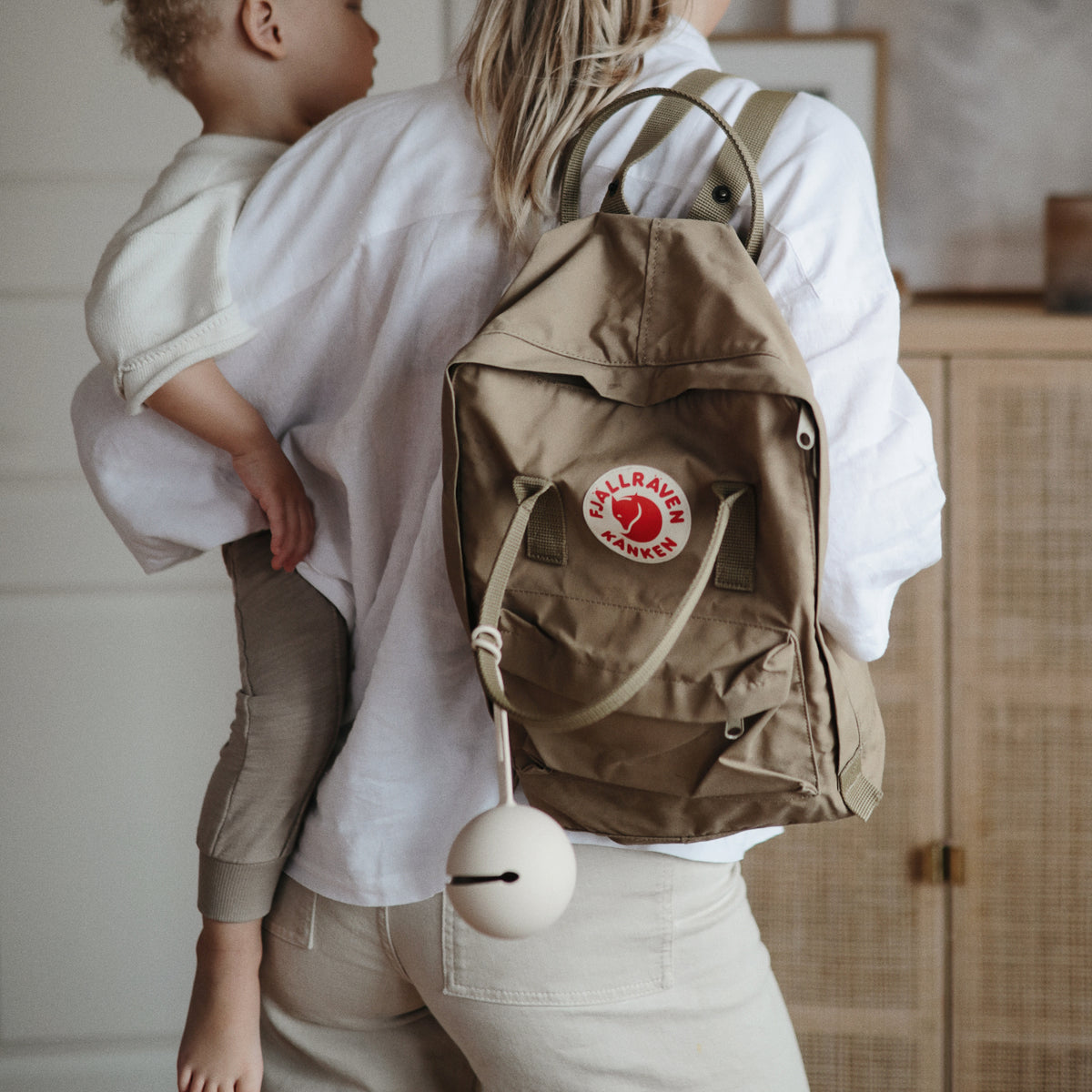Mastering Soothing Psychology With The Mushie Pacifier Case

The journey into parenthood is a remarkable voyage of discovery, marked by countless moments of wonder and joy. Amidst the precious milestones and heartwarming experiences, there lies a fundamental aspect that binds caregivers and infants in a dance of comfort and connection – the psychology of soothing. In this exploration of nurturing and emotional well-being, few tools have captured the essence of this journey quite like the Mushie Pacifier Case. Beyond their physical form, pacifiers hold a profound significance in the world of infants, offering a gateway into understanding the intricate interplay of biology, psychology, and emotional development. As we delve into the captivating realm of the psychology of soothing, we uncover why pacifiers are not just convenient accessories but essential companions on the path to providing solace, security, and the building blocks of a strong emotional foundation for our little ones.

The Pleasure Of Suckering
For neonates, sucking is a normal response. Babies practise sucking their thumbs in the womb even before birth. This instinctual response has many uses. By enabling them to breastfeed or bottle-feed, it not only helps with nutrition but also gives them a feeling of comfort. Endorphins, the feel-good chemicals that induce a state of relaxation and happiness, are released when you suck. In place of thumb-sucking, it provides newborns with a dependable source of comfort when their parents or other caregivers are not accessible.
The Relationship With Calm
Infants go through a wide range of emotions as they learn to understand their environment. Using a pacifier might help you relax when you're feeling stressed, anxious, or overstimulated. Their heart rate may be regulated and their levels of the stress hormone cortisol can be decreased by sucking on a pacifier. Their focus is diverted to a pleasant feeling by the process of sucking, which acts as a type of distraction.
The Function Of Attachment And Security
Interactions with their main carers help babies establish their initial bonds. In this phase, it may help by giving the baby a feeling of security. Sucking on a pacifier replicates the soothing sensation of nursing and promotes a sense of connectedness to the caregiver. This connection is essential for the infant's emotional growth because it builds a foundation of security and trust that will affect their relationships in the future.
Promoting Restful Sleep Habits
Sleep is one of the most difficult components of raising an infant. The development of sound sleep habits may benefit greatly from the use of pacifiers. A pacifier may assist newborns in returning to sleep when they wake up in the middle of the night or during a nap without needing urgent assistance from a caregiver. This is advantageous for both the infant and the parents, who can now rest up after a long day.
Taking Care To Wean
There comes a moment when parents think about weaning their children off of it as they grow and develop. Sensitivity should be used while handling this procedure. Just as it provides comfort, their disappearance might make a youngster feel sad. Weaning gradually and providing substitute comfort items, such as soft toys or blankets, might aid the transition.
Implementing Pacifiers Carefully
To guarantee a happy experience when it is introduced to your baby's routine, take into account the following recommendations:
Decide When To Introduce A Pacifier: Wait until breastfeeding is well-established before doing so. Typically, this happens a few weeks after delivery.
Prioritise Hygiene: To guarantee your baby's health and safety, regularly clean and sanitise pacifiers.
Avoid Using It For Immediate Comfort: It shouldn't be used in lieu of eating right away. It's crucial to attend to a baby's hunger, discomfort, or other needs before responding to their cries, which might be for a variety of reasons.
Watch For Signs Of Readiness: As your child gets older, pacifier interest may gradually wane. Pay attention to their signals and avoid pressuring them to utilise it.
Encourage Gradual Weaning: When it's time to wean your child off the pacifier, do it softly and gradually. To make the transition easier, provide several comfort options.
Sucking's Evolutionary Importance
The need to suck is a long-standing, instinctual activity with strong evolutionary foundations. This reaction has vital survival benefits in the distant past. The ability of infants to latch onto a nipple and eat was closely related to their probability of survival when they emerged into a world full of unknowns. In addition to providing sustenance, sucking served as a message to caretakers that the baby was healthy and doing well. Because effective suckers had a clear survival benefit, this behaviour was perpetuated by evolutionary pressure.
Comfort's Neurochemistry
For newborns, sucking on a pacifier has significant neurochemical effects despite its apparent simplicity. The brain uses neurotransmitters to communicate messages, and the sucking of a pacifier releases a wave of these chemical messengers. When using a pacifier, endorphins, also known as the brain's natural opioids, are produced, causing sensations of pleasure and relaxation. Dopamine, a neurotransmitter linked to reinforcement and rewards, is also produced, which adds to the joyful pleasure newborns feel when pacifying themselves.
The Relationship Between Nature And Nurture
Using a pacifier is a prime example of the complex interaction between a baby's biological demands and the caring environment supplied by caretakers. Babies' biologically based desire for emotional connection, comfort, and security is there from birth. Close physical touch, feeding, and obviously sucking all satisfy this urge. To properly create a space where these biological demands may be addressed, carers' roles are equally important.
In this situation, pacifier cases serve as a link between nature and nurture. They help the infant and caregiver form an emotional relationship while also satisfying an intrinsic biological need for comfort. When a parent gives a crying baby a pacifier, they are not simply meeting a physical need; they are also offering emotional support. The psychology of soothing is a complex dance that moulds the baby's emotional environment and builds the framework for their future well-being. It is based on the confluence of biology and caring.
Cognitive Development And Emotional Control
The transition from infancy to childhood is characterised by notable jumps in emotional and cognitive development. The development of emotional regulation skills—the capacity to control and regulate one's emotional reactions in a variety of circumstances—is a crucial component of this process. Unexpectedly, this important ability starts to develop very early on, and it plays a big part in helping it develop.
An Emotional Resilience Foundation
The act of sucking on a pacifier introduces children to emotional self-regulation at a young age. Babies are exposed to a variety of stimuli, including new sights, sounds, and feelings. Sometimes, these cues might cause emotional reactions like elation, curiosity, or even anxiety. Babies may manage these emotional changes by using the Mushie Pacifier Case from Wonderlandworld, which provides them with a simple and efficient method of self-soothing.
Psychology Of Soothing Is A Vital Aspect
Although sometimes dismissed as basic baby accessories, the Mushie Pacifier Case plays a significant part in a child's early development. In addition to their practical function, pacifiers provide emotional support, a feeling of security, and support the development of sound sleeping patterns. We may better understand the role of the Mushie Pacifier Case from Wonderlandworld in promoting an infant's mental health by understanding the psychology of calming that underlies them. Caretakers may provide a caring atmosphere that adds to a solid foundation for their child's future emotional health by strategically adding it into their early years and learning when and how to handle their use.
Related Post : Make Your Trip Easy-Peasy With Mushie Pacifier Case

